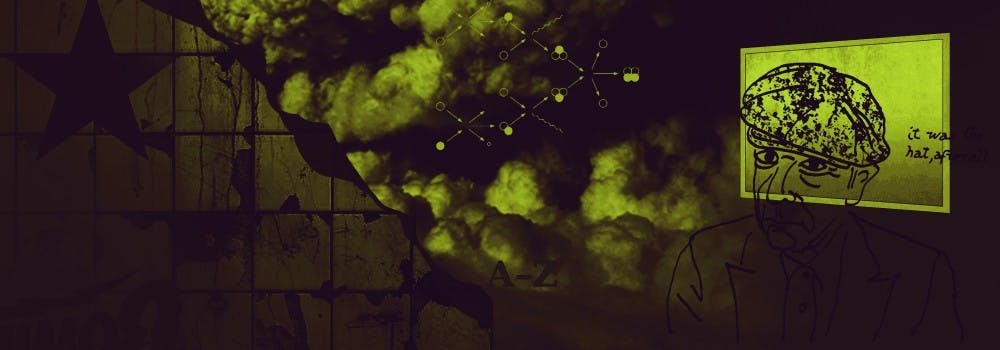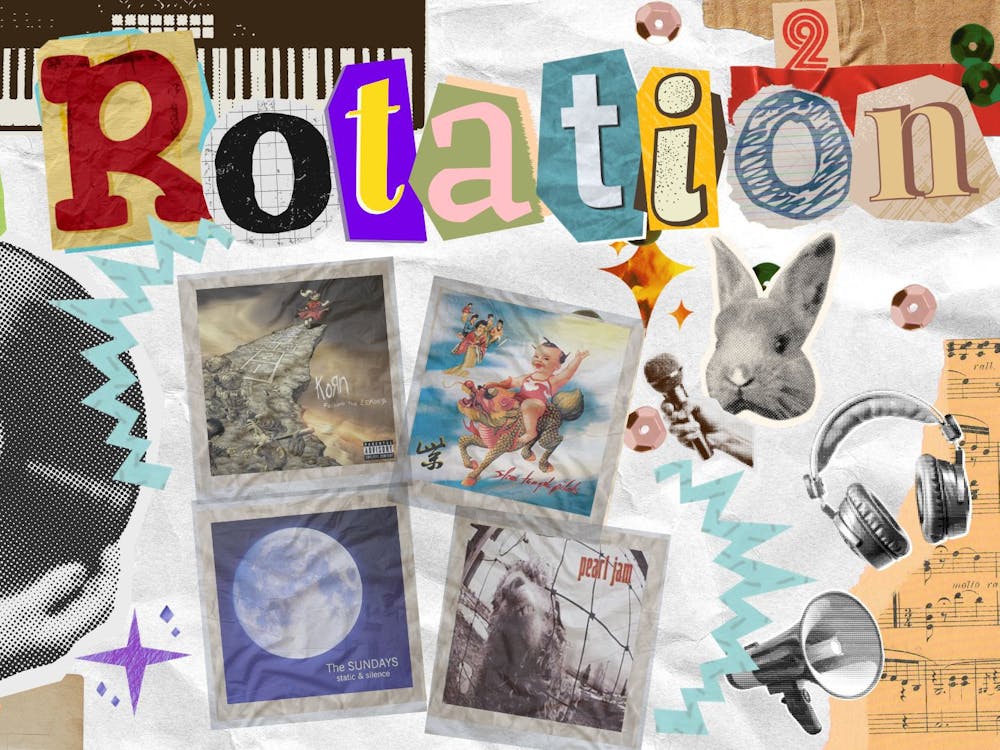By Sam Keeling, Staff Writer
Editor's Note: This article was originally published in The Miami Student Magazine. For more magazine content, visit www.themiamistudentmagazine.com.
David Bowie released his 25th studio album, "Blackstar," on January 8 -- his 69th birthday. Two days later, he passed away after an 18-month battle with cancer that had, up until that point, been very effectively hidden from the public.
On October 21, singer-songwriter Leonard Cohen released his 14th album, "You Want It Darker," at age 82. Following months of rumored poor health and some strange public statements, such as his declaration that he was ready to die in a New Yorker profile, he passed away in his sleep on November 7.
Both Bowie and Cohen were trailblazers in their respective genres -- Bowie as an experimental rock star that created multiple personas to shroud his real self in mystery; Cohen as a blues- and gospel-infused folk singer-songwriter with a unique voice and revealing, powerful lyrics. While their careers were very different, both of their final albums are similar by turning impending death into fantastic and haunting works of art.
Bowie's "Blackstar" is a staggering, challenging work that defies genre: its guitars scream rock and roll, the saxophone croons jazz and the relentless drumming pays homage to one of Bowie's inspirations for the album, hip-hop artist Kendrick Lamar.
It's also a testament to his immense talent and vision that, after 25 albums, he could still take expectations and completely obliterate them. Of course, Bowie had his fair share of flops over his decades-long career, but "Blackstar" is not one of them.
Beyond the musicality, what makes "Blackstar" a true work of art is its not-so-subtle references to Bowie's receding health. "Lazarus," a churning, otherworldly standout, begins with the line "Look up here, I'm in heaven / I've got scars that can't be seen," which seems ambiguous but takes a devastating new meaning considering the cancer present during the recording of this album. The video for the song emphasizes this theme, as a blinded Bowie writhes in agony on a hospital bed before receding into an open wardrobe. As the song reaches its tumultuous climax, he screeches "Oh, I'll be free," and the doors close like the lid to his coffin.
The album's final number, "I Can't Give Everything Away," finds Bowie repeating this line, sounding desperate and full of despair. It paints a picture of an artist who must come to terms with the fact that he won't be able to make music forever. Leave it to Bowie to turn his death into a finale.
Leonard Cohen accomplishes something just as moving and difficult with "You Want It Darker." While "Blackstar" was lavish and challenging, Cohen's final effort is minimalistic. The titular track features a quiet bass line and drums, with Cohen's baritone vocals supplemented by a haunting church choir.
Cohen's music has always been religiously charged (Exhibit A: his 1984 opus, "Hallelujah," which has become one of the most covered and instantly recognizable songs of the past few decades), and that tradition doesn't end here: "If you are the healer, it means I'm broken and lame."
The song, along with the rest of the album, plays out like a man confronting his religion in the face of death. The chorus is a simple couplet: the first line, "Hineni, hineni," translates from Hebrew to "Here I am, here I am." Then Cohen growls, "I'm ready, my Lord." The meaning is unquestionable: he is preparing for the end, embracing the inevitable.
Enjoy what you're reading?
Signup for our newsletter
If the lyrics introduce an ominous sadness to "You Want It Darker," Cohen's voice infinitely expands upon it. He almost talks more than he sings, and while he never reaches the vocal strength of "Hallelujah" on his final album, it works to his benefit.
Rather than a grand and epic final statement like Bowie's "Blackstar," Cohen's final effort is all about peaceful acceptance and gentle submission. However, it's no less of a powerful work of art.
Bowie's and Cohen's final albums ensure their legacies will carry on long after their deaths.




